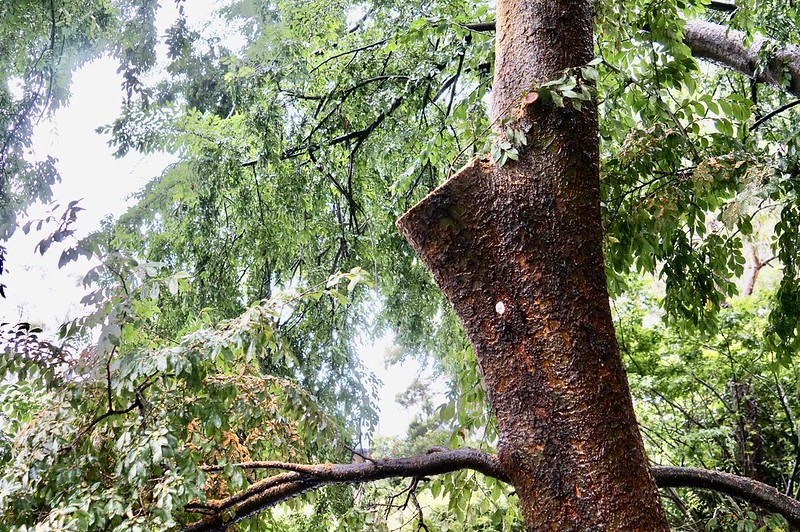It stood beside the dining hall and taller than the dining hall
by half again as much, and in all weather, against all skies
it was like a lit synapse, wild. We went in and out under it
and we loved it, and didn’t think of it. Once there was a rainbow
beyond it, and it was suppertime, and we all came out to look.
I said my faith in humanity was restored, and Bruce said, A rainbow
has nothing to do with people. And he was right. I gestured
behind us at everyone who had left their plate, and he conceded
but he was right. Some things have nothing to do with people
like an elm which, left alone, can live a century. It was ten years
later that I stood shoulder to shoulder with T. and we looked
and we said, It looks like an elm! Is it an elm? It was. It was
an elm. We hadn’t noticed, and yet there it had been and there
it had lived, cloudy green every spring, while all its fellows
on the continent died. I felt as if the elm were a god
that had showed itself to us. I was awed, but I felt warm
and sure. The elm stood there like a crack of lightning.
We looked at one another in happy wonder. We were not
afraid. We did not know what was coming. Listen, if I tell you
in the last year it sickened, that they hacked it up
and laid it down on a wild day of silk lavender skies, it would seem
too perfect. Plufort was never perfect. You wouldn’t believe.
Katherine Hollander is a poet and historian. Her first book of poems, My German Dictionary, won the Anthony Hecht Poetry Prize. New poems have appeared in The Hopkins Review, Salmagundi, On the Seawall, and elsewhere. A scholarly monograph, Artistic Collaboration, Exile, and Brecht: A New Intellectual History 1900–1950, is forthcoming in 2025. She teaches poetry and history at Tufts University.




